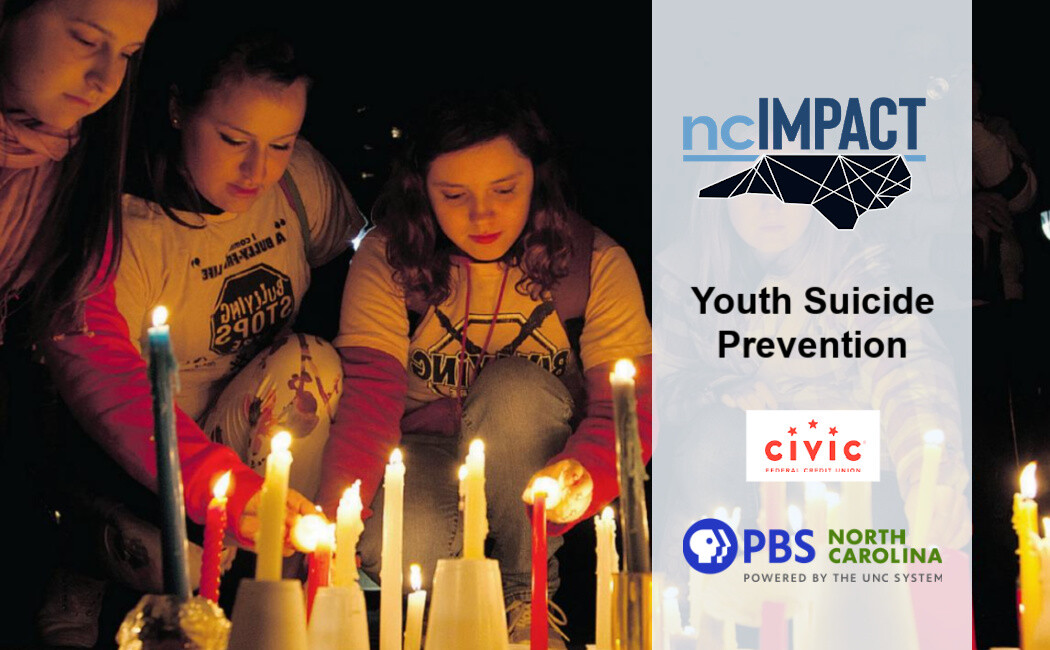Youth Suicide Prevention (Blog)
In 2006, the suicide rate for children and youth in Watauga County was thirty percent higher than for the state of North Carolina. To address mental health concerns for students, Watauga High School partnered with Appalachian State University to establish High Country Help.

The Challenge
 Youth suicide is a major problem throughout the nation and the second leading cause of death for children, adolescents, and young adults from ages 15 to 24. Most children and youth who attempt suicide have a treatable mental health disorder such as depression. The North Carolina Child Fatality Task Force reported that in 2018, suicide was the second leading cause of death for children 10-14 years old, and the leading cause of death for children 15-17 years old. Suicide mortality rates have been rising since the 2004-2008 period, and with the COVID-19 pandemic, concerns exist that even more students will face hardships that place them at greater risk of suicide.
Youth suicide is a major problem throughout the nation and the second leading cause of death for children, adolescents, and young adults from ages 15 to 24. Most children and youth who attempt suicide have a treatable mental health disorder such as depression. The North Carolina Child Fatality Task Force reported that in 2018, suicide was the second leading cause of death for children 10-14 years old, and the leading cause of death for children 15-17 years old. Suicide mortality rates have been rising since the 2004-2008 period, and with the COVID-19 pandemic, concerns exist that even more students will face hardships that place them at greater risk of suicide.
Source: North Carolina Child Fatality Task Force Annual Report 2019
Ac cording to the North Carolina Child Health Report Card, 16% of high school students in the state reporting seriously considering suicide in 2017. The issue can be compounded by the social discrimination that lesbian, gay, bisexual, transgender youth often face. Additionally, North Carolina schools are under-resourced with those who can provide students mental health services—school counselors. School counselors have a case load of 368 students on average in North Carolina, which exceeds the American School Counselor Association’s recommendation of 250 students.
cording to the North Carolina Child Health Report Card, 16% of high school students in the state reporting seriously considering suicide in 2017. The issue can be compounded by the social discrimination that lesbian, gay, bisexual, transgender youth often face. Additionally, North Carolina schools are under-resourced with those who can provide students mental health services—school counselors. School counselors have a case load of 368 students on average in North Carolina, which exceeds the American School Counselor Association’s recommendation of 250 students.
Source: North Carolina Child Health Report Card 2019
The Solution
In 2006, the suicide rate for children and youth in Watauga County was thirty percent higher than for the state of North Carolina. To address mental health concerns for students, Watauga High School partnered with Appalachian State University to establish High Country Help. The program operates within the school and brings in clinicians and supervised graduate students from Appalachian State to provide mental health care in Assessment, Support, and Counseling (ASC) Centers. The High Country Help service delivery model includes training for public school personnel to better understand mental health issues, crisis and brief intervention, risk or substance use assessments, professional development, outreach, and referrals. The referral starts the process, and then a team convenes to meet with the student and develop a personalized treatment plan.
Since 2006, the program grew to serve seven schools across three school districts in Watauga, Alleghany, and Ashe counties. In just half of the school year 2013-2014, the program assisted 41 students, provided crisis intervention to 20 students, and provided individual therapy to 22 students, with a 50% recovery or improvement rate. The ASC Centers provide support and intervention for the most serious cases and eases the caseload of school counselors as well.
The Players
The ASC Centers and High Country Help are a partnership between Appalachian State University and seven schools in Alleghany, Ashe, and Watauga counties: Alleghany High School, Ashe County Middle School, Ashe County High School, Glade Creek Elementary School, Piney Creek Elementary School, Sparta Elementary School, and Watauga High School. The Departments of Psychology and Human Development & Psychological Counseling at Appalachian State participate in the program. Appalachian State, the Ashe County Schools District and RTI International partner on a $2.5 million grant from the U.S. Department of Education to expand rural school mental health access in North Carolina.
The Promise
The ASC Centers benefit students and families of Watauga, Alleghany, and Ashe counties, but also the graduate students at Appalachian State University by providing clinical experience to support their education and training. The program maintains a sustainable workforce through supervised graduate students who hope to become mental health clinicians themselves. The ASC Centers receive funding from Watauga County Schools, as well as grant funding from the U.S. Department of Education to support scaling up the program.
Watauga, Alleghany, and Ashe counties are not the only places addressing mental health and youth suicide in North Carolina. In Wake County, the Signs of Suicide program provides students with information about risk factors and warning signs, as well as the opportunity to request a same-day assessment from a trained nurse, counselor, psychologist, or social worker. In Pender County, the HOPE Squad is a student group that receives specialized training around suicide and serves as a peer group that refers concerns to adults.

